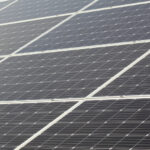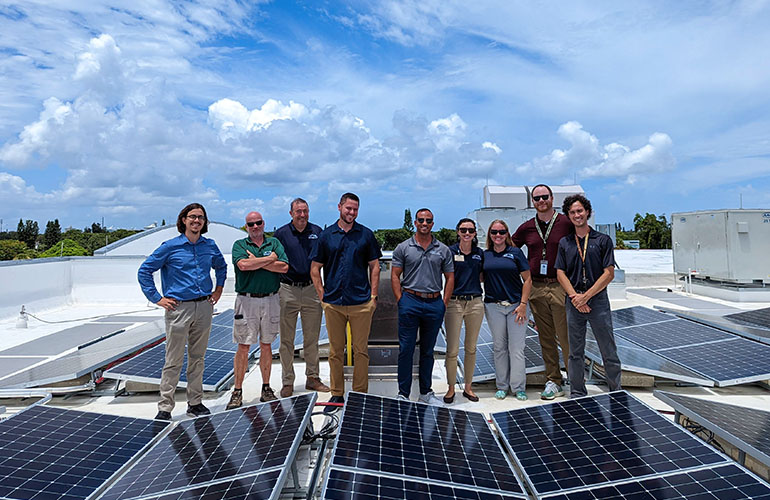SMUD plans to cut net-metering credits by 44% next year
Just a few days after President Biden’s Department of Energy released a first-ever blueprint calling for an immediate doubling of solar energy to fight climate change, Sacramento’s local utility company adopted a policy that will slow down new solar installations in the region while harming existing solar users. The policy comes a year after the Sacramento Municipal Utility District (SMUD) Board of Directors adopted its own climate emergency declaration and committed itself to getting off fossil fuels by 2030. That commitment will require a lot more renewable energy, yet neither the SMUD Board nor its staff have a plan for how it will get there, leaving environmentalists dumbstruck as they watch the utility deliberately slow down the growth of solar energy in the region.
“SMUD is killing rooftop solar at a time when they should be doing everything in their power to grow it,” said Lee Miller, Elk Grove resident and board member of the Solar Rights Alliance, an organization that represents solar users in the Sacramento region and across California. “This is utter madness. The state is burning. Hurricanes are raging. We need more solar, a hell of a lot more solar power, and we need it right now.”
In response to SMUD’s decision to slash solar incentives, solar users and environmentalists took to the streets, organizing a protest outside SMUD headquarters during a virtual board meeting.
“I went solar to help the planet, power my EV, and save money on my utility bill, but I never thought SMUD would claw back the financial benefits of significant customer investments in clean, renewable, energy,” said SMUD customer Fatima Malik. “SMUD used to be a progressive utility, but they have become a backwoods bully. All they seem to care about is hoarding opportunities and monopolizing the solar energy market.”
At a board meeting Thursday night, the SMUD Board of Directors voted to adopt changes to its long-standing net-metering program. Under net metering, 36,000 SMUD homes have gone solar to date, including 2,000 low-income families on SMUD’s bill assistance program, and more than 400 businesses.
Specifically, starting March 2022, SMUD will reduce the credit customers receive for energy sent back to the grid and used within their immediate neighborhood by 44%, from 13.2 cents to 7.4 cents per kilowatt-hour. Such a move will make solar investments less valuable and therefore harm the financial benefits. Most consumers look to save money by investing in solar power. The policy changes will be retroactive to all existing solar users in SMUD territory starting in 2031. The reduced credits are also triggered by adding solar panels to an existing solar system, adding a battery, or selling your home. Making retroactive changes to net metering is something the state of California has rejected for customers of PG&E.
Today, 6,400 homes in Sacramento County invest in solar every year, generating 27 MW of clean energy and supporting 2,700 jobs and dozens of local businesses. The California Solar and Storage Association estimates that under SMUD’s new program, the solar market for existing homes will slow down and reduce by as much as 40-50 percent from what it is today.
“We’ve seen this movie before. Other utilities have tried the same thing and the results are disastrous: less solar and fewer local jobs,” said Ben Davis, policy associate at the California Solar & Storage Association (CALSSA) representing dozens of local solar companies and their workers. “We see this kind of backwards policy making in other states, but you never really get used to seeing it in California, not to mention Sacramento. It is a shame.”
At a workshop of the SMUD Board of Directors two weeks ago, SMUD staff orchestrated public comment from local organizations and businesses they lined up to speak in favor of their anti-solar proposal. Many of the organizations receive grant money from SMUD and had little knowledge in the policy being debated. Meanwhile, members of the public, including existing solar users, were expected to wait more than three hours on a video call to testify against the proposal. Many individuals dropped off due to the long wait and feeling of disenfranchisement.
“I can’t believe SMUD is not supporting working families by allowing them to use solar to reduce their bills when we are struggling with COVID and under-unemployment,” said Adriana Santana, a mother of six who lives in Del Paso Heights and went solar last year. “My bill used to be over $400/month, and I was drowning in debt. I was falling behind on my bill payments and was having to sacrifice because if I pay $400 to SMUD, that’s money I don’t have for groceries for two weeks for my kids. I invested in solar to save money and it worked, but now SMUD is trying to pull the rug out from under me and my neighbors.”
In promoting their anti-solar plan, SMUD is touting their support of another program that they claim will spur the adoption of energy storage but is actually a lackluster initiative that raises a number of questions for consumers. Under the program, SMUD would provide an upfront rebate of up to $2,500 plus $200 per year. Combined, the payments will cover approximately 35% of the battery’s cost, but the homeowner would need to turn over 75% of the battery to SMUD for up to 200 days each year. The program is unlikely to spur significant adoption given the high cost of batteries and low subsidy payments combined with requirements that make the battery feel more like SMUD’s than the homeowner’s.
Meanwhile, SMUD is maintaining its large subsidies to consumers who invest in electric appliances and vehicles. The utility prefers homes that are all electric but that don’t have their own solar energy system to cover their increased electricity usage. In this way, consumers buy more of SMUD’s product: electricity, which increases the utility’s revenues significantly.
“We are all about solar energy and energy storage, and rooftop solar goes hand in glove with electrification efforts,” said Davis. “But consumers need solar power to charge their batteries and they need solar power to cover their increased electricity usage. Killing the economics of solar while attempting to encourage batteries and home electrification is like taking one step forward and two steps back. This is how you squash an emerging market, not how you grow it.”
Utility interests, including SMUD, have promoted making major changes to the state’s net-metering program through a trumped-up cost-shift argument. Their line of thinking claims homeowners, schools and businesses who generate their own power from the sun are not providing enough revenue for the utility, thereby forcing the utility to meet their revenue needs on the backs of other customers. Studies show that investing in local rooftop solar energy can save on utility costs, avoiding having to bring energy into cities like Sacramento from distant solar and wind farms. Utility revenues may shrink but their ability to pass along savings to all ratepayers from a more affordable, renewable electric grid grows.
“Everyone knows a stitch in time saves nine,” said Miller. “Investing in rooftop solar energy today, will save all consumers billions of dollars in the years to come as we continue to fight climate change. That’s what President Biden’s call to action is all about and it is a shame the SMUD Board of Directors is going in the opposite direction.”
News item from the Solar Rights Alliance
<!–
–>
Original Source: https://www.solarpowerworldonline.com/2021/09/smud-plans-to-cut-net-metering-credits-by-44-percent-2022/












